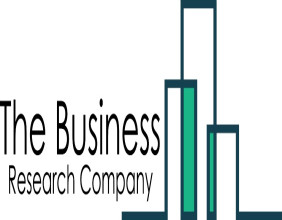Highlights
- Biome Technologies PLC (BIOM) joins a growing list of companies exiting public exchanges
- Public listing challenges such as high maintenance costs and liquidity issues drive delisting decisions
- Strategic moves to go private offer enhanced operational control and long-term growth focus
The financial markets and public listings sector play a vital role in modern economies, providing companies with access to capital and a platform for growth. However, the environment is shifting as an increasing number of organizations choose to exit public exchanges. This change, driven by various fiscal and strategic challenges, is influencing public market dynamics. Companies within sectors ranging from technology to life sciences are reassessing the benefits of remaining publicly listed versus the potential advantages of private ownership. Biome Technologies PLC (LSE:BIOM), a firm engaged in bioplastics and radio frequency systems, exemplifies this trend, having recently opted to delist from the AIM market.
Understanding the Shift from Public Listings
Public companies face numerous pressures that can lead to a decision to delist. The financial burden associated with maintaining a public listing is significant. Companies must meet not only initial listing fees but also ongoing regulatory, reporting, and compliance requirements. These obligations can strain resources, particularly for smaller or emerging firms. Limited access to additional capital despite being public, coupled with liquidity concerns that lead to volatile share prices, creates an environment where the costs of public ownership may outweigh the benefits.
Challenges in the Public Market Environment
For many organizations, the challenges of public listing extend beyond financial expenses. Maintaining visibility in a crowded market often requires continuous communication and transparency. The pressure to deliver short-term results through quarterly reporting can divert attention from long-term strategic planning. In sectors characterized by rapid innovation or regulatory uncertainty, such as bioplastics or high-tech industries, these pressures may hinder a company’s ability to execute its long-term vision. In many cases, firms face declining share prices that do not accurately reflect their underlying business potential, further complicating public market operations.
Biome Technologies PLC as a Case Study
Biome Technologies PLC (LSE:BIOM) serves as a notable example of a company that has chosen to exit the public domain. Specializing in bioplastics and radio frequency systems, Biome Technologies experienced a significant drop in its share price, prompting management to reassess its position in the public market. The decision to delist was driven by multiple factors, including the desire to reduce regulatory scrutiny and operational pressures. By transitioning to private ownership, the company aims to streamline its operations and focus on long-term growth strategies without the constant demands of public market performance. This move reflects a broader trend among junior and small-cap companies seeking a more flexible and sustainable business environment.
Market Movements and Broader Delisting Trends
The trend toward delisting is not isolated to Biome Technologies. In recent months, a growing number of companies have exited public exchanges, mirroring similar patterns observed in previous years. Data from early 2025 shows that approximately a dozen companies have opted to leave the public market, following a surge of nearly 90 delistings in the previous year. The criteria influencing these decisions often revolve around high maintenance costs, limited capital access, and liquidity challenges. For many organizations, the pressures associated with public listing create an incentive to seek alternative structures that offer more strategic freedom.
Strategic Benefits of Private Ownership
Transitioning to private ownership can provide several operational advantages. Without the need for constant regulatory compliance and public reporting, companies can allocate more resources to innovation and long-term planning. Private entities benefit from enhanced decision-making autonomy, allowing them to adapt strategies quickly in response to changing market conditions. This increased control can lead to operational efficiencies that are difficult to achieve in the public market environment. Additionally, private ownership often facilitates a focus on sustainable growth, as companies are relieved from the short-term pressures of quarterly earnings reports and market fluctuations.
Sector-Specific Perspectives
The decision to delist is influenced by factors that vary across different industries. In the technology and bioplastics sectors, for instance, rapid innovation and changing regulatory landscapes can make the public market environment particularly challenging. Companies in these industries may find that the freedom to experiment and invest in long-term research and development is better supported outside of public scrutiny. The pressures of maintaining a public profile can stifle creativity and slow down decision-making, which are critical elements in sectors where time-to-market and adaptability are paramount. For many of these firms, private ownership represents a strategic choice that aligns with their operational needs and long-term objectives.
Comparisons with Alternative Market Options
Beyond the immediate challenges of public listing, some companies are exploring alternative options to support growth. These alternatives include raising capital through private channels or seeking listings in markets with more favorable regulatory environments. The global landscape offers a variety of platforms where companies can access funding while avoiding the burdens of public market operations. For instance, some firms are targeting emerging markets or specialized exchanges that cater to high-growth sectors. By choosing a private structure or an alternative market, companies can align their financial strategies with their growth trajectories more effectively.
Implications for Future Capital Market Dynamics
The rising trend of delisting from public exchanges is prompting a re-evaluation of capital market strategies across industries. As more companies choose to exit the public domain, the dynamics of public listings may shift significantly. Stakeholders and market participants are observing these changes closely, as they may signal broader systemic shifts in how capital is raised and allocated. The move toward private ownership could lead to a more concentrated public market, where only firms that can meet rigorous regulatory and performance standards remain. This potential shift could impact market liquidity and the overall attractiveness of public exchanges to both companies and external stakeholders.
Final Reflections
The evolution of public listings in the United Kingdom reflects broader trends within the global financial landscape. As demonstrated by Biome Technologies PLC (LSE:BIOM) and other recent delistings, the challenges of maintaining a public presence—ranging from high compliance costs to liquidity issues—are driving companies to explore alternative structures. Private ownership offers a pathway to greater operational flexibility, strategic focus, and long-term growth, free from the immediate pressures of public market performance. The ongoing shift in delisting trends highlights the importance of adapting business models to align with the realities of today’s dynamic economic environment, providing insights that are shaping the future of capital markets worldwide.





